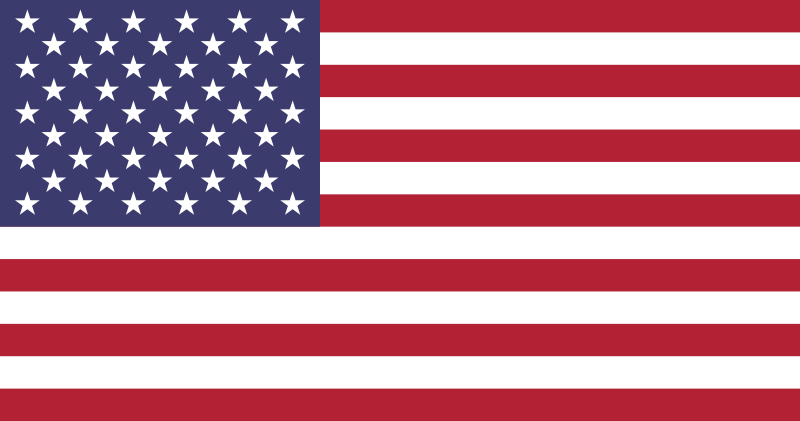 États-Unis d'Amérique
États-Unis d'Amérique
Foreign Minister Sergey Lavrov takes questions from RT news channel, Moscow, November 19, 2020
Question: You said the State Department’s remark about the need to inform the United States about the details of the agreement on Nagorno-Karabakh sounded strange. You said it was strange because information was passed on to them through diplomatic channels. Why do you think they are so nervous? Could they be jealous just because the matter was sorted out without their involvement?
Sergey Lavrov: First, I don’t think it was resolved without the United States. The position of the three OSCE Minsk Group co-chairs, Russia, the United States and France, has been repeatedly stated at the level of presidents, ministers, and special representatives of the co-chairing countries over the past month, prior to conclusion of the November 9 agreement. This position favoured an immediate end to the bloodshed and the development of a mechanism for monitoring the ceasefire. It exerted a political and psychological influence on the situation. No matter what some think of our Western partners, they can influence the countries in the region. Although they did not have a physical form at that time, these appeals played an important political role in creating conditions for the agreement, which was made possible by President Putin’s huge efforts. It works.
Wounded pride is clearly showing in my contacts with my US and French colleagues over the past few days, as well as in contacts between President Macron and President Putin on Nagorno-Karabakh, which is sad. I have spoken with French Foreign Minister Jean-Yves Le Drian twice in the past few days. I tried to explain to him that our focus is on people not getting killed and not having to leave their homes, so we don’t see tens of thousands more refugees and displaced persons. In a situation where literally minutes mattered (each minute meant a loss of life), calling Washington or Paris and finding our whether they would be supportive of certain language... making these claims is incorrect and unethical from a moral point of view. Unfortunately, politics is often about the desire to “shine” or to show some kind of quick initiative, to hit the domestic political jackpot, to reinforce positions in multilateral organisations like the EU, to confirm leadership, etc. This is sad. Of course, we are pleased when Russia does things that get the international community’s support. However, this is not our main goal in Syria or Nagorno-Karabakh, or anywhere else. Our aspirations to strengthen or show off our prestige are not that important. It is always nice when things work out, and everyone recognises your success. But the main thing for us is to make sure there are no conflicts or crises, no one dies and the situation near our borders is stable, but not only that.
In Syria, our decision to respond positively to the request from the legitimate government and the president was dictated, primarily, by the understanding of the disastrous nature of the further developments of the Arab Spring, its spread to other countries, and the destruction of statehood in more countries. Stopping the geopolitical collapse of this key region was our main goal, also because Russia’s security largely depends on stopping the terrorist threat emanating from the Middle East, North Africa and the Eastern Mediterranean.
The same applies to our close neighbours in the post-Soviet space. We want them to be peaceful and stable so we can expand mutually beneficial cooperation and implement mutually beneficial projects in the economy, investment, healthcare and biological safety. Threats that are not fictional, but real, and affect everyone’s well-being, are always present.
We arranged a meeting to discuss these matters with the co-chairs from the United States and France. They came to Moscow. It appeared that the special representatives on Nagorno-Karabakh from Paris and Washington, who work alongside our special representative, accepted our additional clarifications in full. We made an extra effort to discuss outstanding issues that remained unclear following the very unambiguous joint statement that the leaders of Russia, Azerbaijan and Armenia signed in the early hours of November 10. President Putin’s recent interview, in which he opened up on how he worked with his colleagues from Baku and Yerevan has, in my opinion, dotted all the “i’s” and clarified every other issue that may have remained unclear.
Question: Still, the level of involvement and the degree of initiative are incomparable. You said other countries try to earn political points and cement their authority. This does not apply to Russia in any way?
Sergey Lavrov: No, we did not have this goal. We are philosophical about the way they are trying to interpret the agreement of November 9 and Russia’s role in achieving it. These are absolutely diametrically opposed positions. On the one hand, “Russia deceived almost everyone and emerged as the main beneficiary.” On the other hand, “Russia has betrayed its allies.” But you see how unscrupulous everyone, our political analysts included, is in their comments on what happened. Some of our analysts directly accused us of betraying our obligations under the Collective Security Treaty. First, I don’t think that the people (I know their names) are simply politically and legally illiterate. Second, they cannot be unaware of the fact that the CSTO obligations apply exclusively to the joint protection of the CSTO member state from external aggression, which, of course, wasn’t the case with Armenia. There are many similar examples. I leave them to the conscience of foreign and Russian authors.
It appears that anything is okay for our die-hard oppositionists, including the brazen distortion of facts. We will work on implementing our foreign policy outlined by the President which enjoys, judging by the polls, including the ones conducted by RT, the broad-based support of our citizens.



